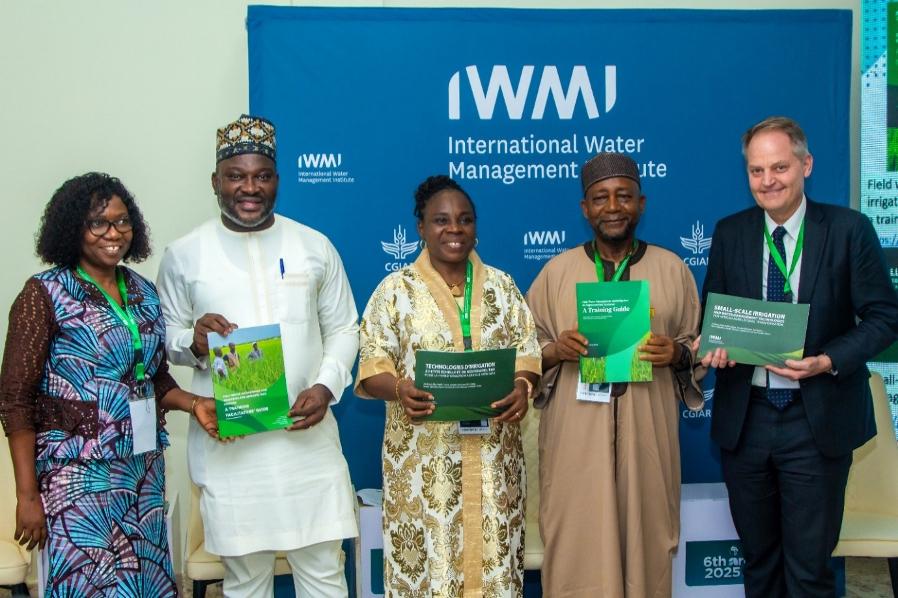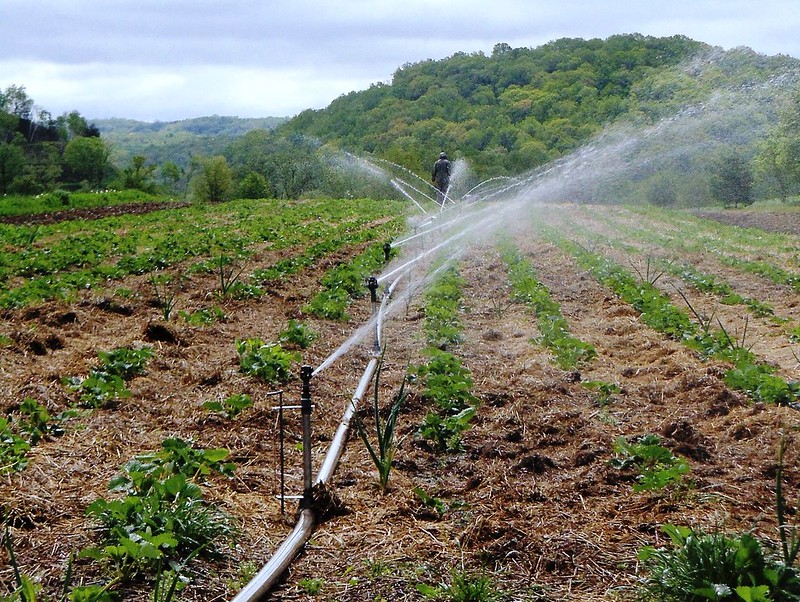
By Deborah Olaoluwa
Over the past six decades, African countries have made significant investments in irrigation infrastructure and agricultural water management to improve crop productivity and food security. However, numerous studies indicate that many large-scale formal irrigation schemes either perform sub-optimally or have been abandoned.
This underperformance is primarily due to several factors, including faulty design, weak technical capacity, insufficient farmer knowledge and training, poor governance, weak institutions, lack of financial viability, and inadequate market linkages.
Environmental challenges such as salinisation, waterlogging, and climate-related vulnerabilities also contribute to this underperformance.
While large-scale irrigation has dominated public investments, it is increasingly evident that such approaches are often unsustainable in the African context.
In contrast, research shows that farmer-led irrigation development (FLID) investments are more sustainable, with farmers achieving higher yields and greater returns on investment. FLID allows smallholders to invest incrementally, innovate based on local conditions, and integrate irrigation with diversified livelihood strategies.
Recognising this, the Technologies for African Agricultural Transformation (TAAT) has been working with stakeholders across the continent to shift the narrative.
It promotes farmer-led irrigation approaches as sustainable solutions to expand irrigation practices and enhance the productivity, inclusivity, and long-term impacts of irrigation interventions in Africa.
TAAT-WEC interventions
TAAT is a flagship initiative of the African Development Bank’s Feed Africa strategy. It boosts agricultural productivity by rapidly scaling proven technologies to millions of farmers across the continent and mobilises a consortium of partners to deploy these technologies through commodity and enabler compacts targeting selected agricultural value chains.
The TAAT Water Enabler Compact (TAAT-WEC), led by the International Water Management Institute (IWMI), focuses on scaling climate-smart irrigation and soil and water conservation solutions for smallholder farmers. By implementing on-farm demonstrations, training programs, and youth-focused business models, the compact creates an enabling environment that empowers farmers to invest in water management solutions.
TAAT-WEC interventions have been implemented in Burkina Faso, Ghana, Ethiopia, Côte d’Ivoire, Mali, Nigeria, Malawi, and Sudan, supporting key value chains such as rice, wheat, vegetables, orange-fleshed sweet potatoes, and sorghum.
Effective water management is critical for the success of other TAAT-promoted technologies, such as improved seeds, by ensuring high productivity and increased production across these value chains.
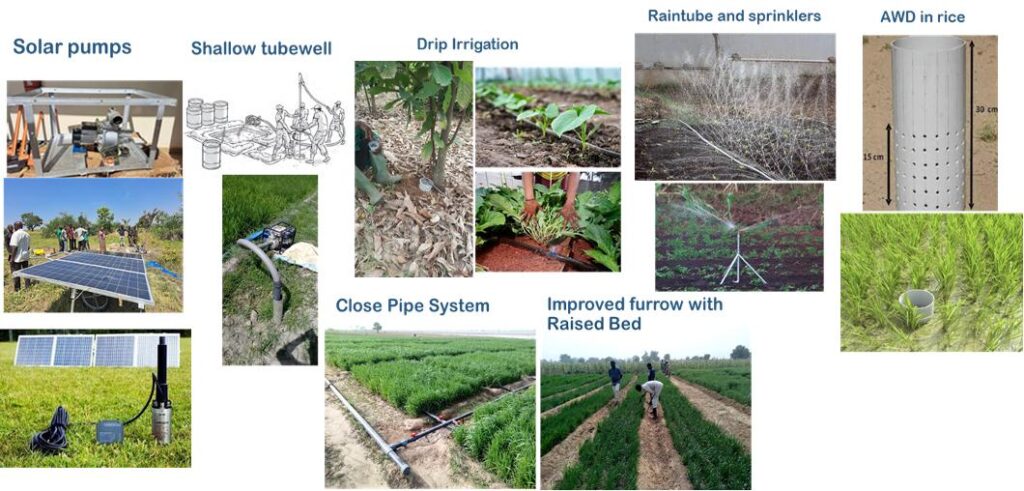
Scaling of irrigation and water management innovations
The recent African Regional Conference on Irrigation and Drainage (ARCID), held in Abuja in 2025, provided a platform to showcase TAAT activities across Africa.
TAAT-WEC facilitated the deployment of water management technologies tailored to different value chains using participatory demonstration and innovation bundling as key scaling strategies. These interventions ensure improved water use efficiency and productivity.
A vital aspect of TAAT-WEC’s approach is providing technical assistance to value chain actors, including extension officers, farmers, private sector participants, and NGOs, to facilitate widespread adoption of these technologies.
In his keynote address, Dr. Mark Smith (Director-General of IWMI) emphasized the need for renewed commitment to investment and scaling of irrigation and water management innovations across the continent. He challenged African governments to prioritize investment and policy action to build climate-resilient agricultural systems capable of sustaining food security and economic growth in the face of increasing climate risks.
Dr. Olufunke Cofie (Africa Director for Research Impact, IWMI) emphasized the importance of collaboration and partnerships among stakeholders, as well as the renewed commitment to strategic investment needed to scale agricultural water management innovations across the continent.
“IWMI is dedicated to transforming the irrigation sector in Africa through efficient innovations, but the commitment and collaboration of all institutions and political authorities across the continent are essential for making a lasting impact, she noted”
Participants at the TAAT-WEC session included representatives of the AfDB, irrigation and water resources experts from universities, various government ministries and agencies across Nigeria and other African countries, NGOs, and private sector entrepreneurs. The ARCID brought together experts, policymakers, and key stakeholders from across Africa to address critical challenges in the irrigation sector. The conference, themed “Tackling the Irrigation Development and Management Crises in Africa,” provided an opportunity for TAAT-WEC to showcase its achievements over recent years.
During the technical presentations at the TAAT-WEC session, Dr. Adebayo Oke spoke on “Water in Agricultural Value Chains,” providing an extensive overview of TAAT-WEC activities and lessons from 12 SSA countries. Similarly, two use cases from Ghana and Egypt were discussed by Dr. Birhanu Zemadim and Dr. Makram Belhaj Fraj, respectively.
These presentations emphasized various agricultural water management solutions to enhance the resilience and productivity of smallholder farming systems across Africa, as well as the importance of stakeholders’ commitment to scaling.
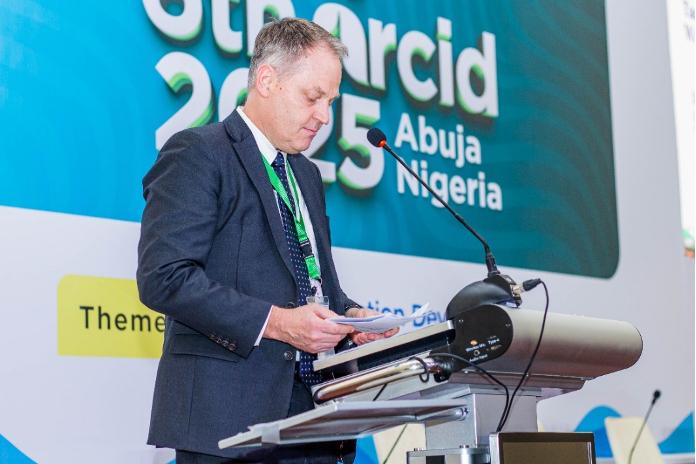
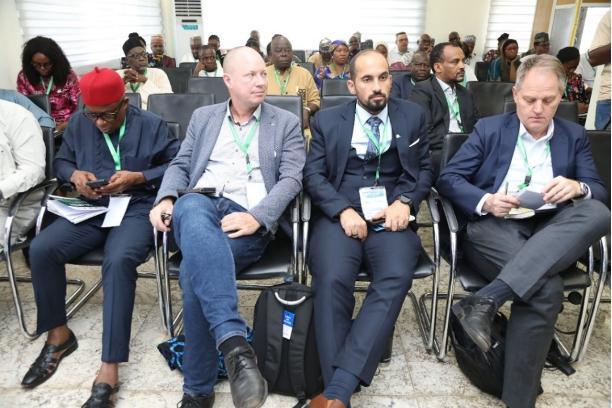
Knowledge materials for scaling irrigation
One significant commitment of the TAAT ecosystem and the TAAT-WEC is to ensure the availability of knowledge products and support services to catalyse the capacity building of stakeholders for sustainable and efficient innovation scaling. During the ARCID, four new IWMI training materials were launched:
1. Field water management and irrigation for improved rice systems: a training guide. The training guide focuses almost exclusively on irrigation and water management in rice systems. It has six modules.
2. Field water management and irrigation for improved rice systems: a training facilitators guide. This guide is intended to help facilitate effective ToT.
3. Small-scale irrigation and water management technologies. This training manual presents a practical overview of key irrigation and water management principles and practices. It covers 13 modules.
4. Technologies d’irrigation à petite échelle et de gestion de l’eau pour la transformation agricole Africaine. The French version of Small-Scale Irrigation and Water Management Technologies
The remarks of Engr. Inuwa K. Musa FNSE (former VP of ICID), Engr. Oluronke Oluniyi FNSE (Director, Irrigation and Drainage Department, Abuja), and Dr. Mark Smith (DG, IWMI) corroborate the importance of training in innovation scaling and efforts of TAAT-WEC in this regard.
The representative of the African Development Bank at the session, Dr. Karikari, acknowledged the success of TAAT in Africa and emphasized the Bank’s commitment to supporting countries in changing the current narrative of food insecurity in Africa.
The participants at the TAAT-WEC session appreciated the efforts of the TAAT Clearinghouse and the TAAT-WEC specifically. However, various African countries requested that irrigation be taken more seriously through strategic investment, renewed commitment to capacity building, and collaboration with knowledge centres to ensure increased resilience of African agricultural production systems.
